A Natural Alternative for Seasonal Allergies
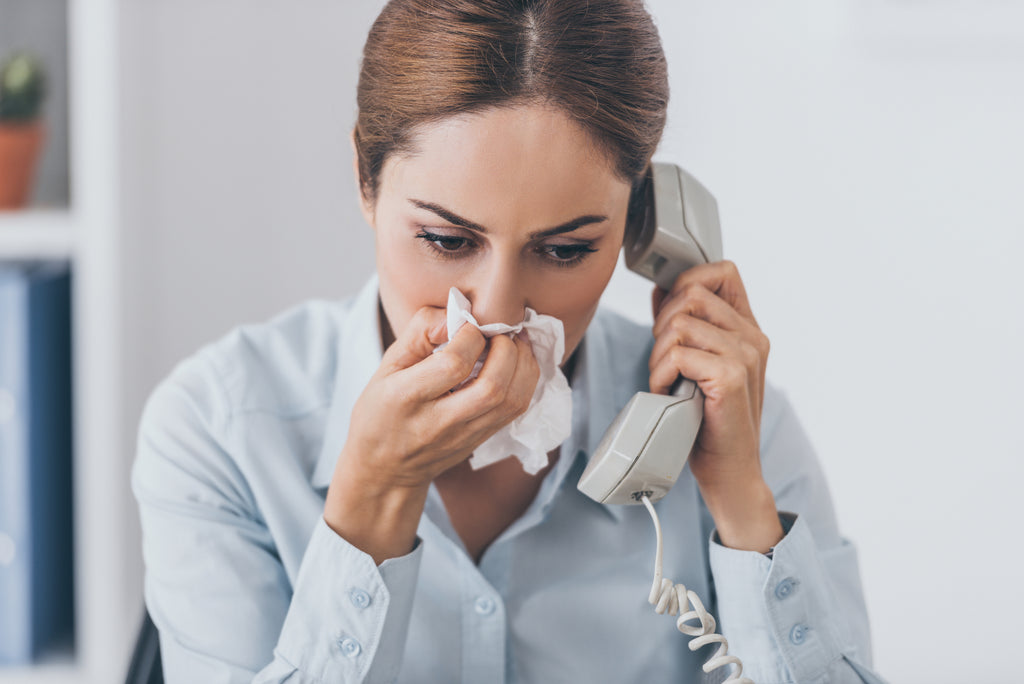
Atlanta allergy seasons are no joke! We get hit by Spring pollen from trees and weeds for months- sometimes starting as early as February and continuing into May. The summer gives us grass pollens and those that are sensitive can suffer from all the mowing. In the fall we have an explosion of weed pollens, with Ragweed and Goldenrod often giving people the most problems. In between, mold allergies pop up when it’s wet, and sometimes in the winter. That’s the pattern here in Atlanta. Other cities in the South are as bad or worse, and places elsewhere in the country or abroad can have completely different seasons and pollens to bother you. If you travel, your environmental allergies can go haywire at almost any time.
Depending on the person, seasonal environmental allergies can be a nuisance or a real health threat. Those that have asthma, or a severe allergy to a particular pollen or some other allergen in the environment can have a life-threatening reaction to a burst of environmental allergens. Those that have less severe pollen allergies can still have adverse health effects, and many of us can feel miserable for weeks. Even without a severe reaction, our eyes can itch, our noses are stopped up, we feel foggy and tired, and it can be hard to concentrate. It can also be hard to sleep. Your swollen throat, thickened mucous, and itchiness can keep you awake at night. Lack of sleep can not only slow your productivity the following day but without enough sleep for your mind and body to repair themselves, your immune system is suppressed, your mind isn’t as efficient, and existing medical conditions like high blood pressure can be worsened. Even if you do sleep well, the inflammation from the pollen may cause you to snore, meaning anyone you share the bedroom with mat NOT sleep well. If you have pets, the problem can be even worse, as they tend to track pollen into the house and get it all over their fur.
People who have severe reactions to pollen know to use an inhaler, if they have asthma, or perhaps a product like Benadryl if they suffer from a more intense allergic reaction. While an inhaler may solve your breathing problems, it won’t do much for other symptoms, and you could still feel miserable. Benadryl tends to make people very drowsy and isn’t necessarily a good solution when you have to drive, work, or even play. Benadryl is an antihistamine and works by suppressing the histamine response that allergens provoke. It’s histamine that causes the inflammation, mucosal production, and general irritation. Histamine reactions mean that the body is attacking the foreign invader, in this case, pollen. Sometimes your body goes overboard, and the histamine reaction is worse than the invader itself. Seasonal allergens are a good example of that. Suppressing the histamine reactions your body experiences as a result of pollen can definitely make you feel better, but Benadryl isn’t the only way to do that, nor is it the only pathway to relief. Many times, as well, you don’t want the sledgehammer effect that Benadryl offers and would like an alternative.
The active ingredient in Benadryl is an antihistamine called diphenhydramine HCl. There are a number of generic versions available as well. Some common side effects of diphenhydramine HCl include drowsiness, dizziness, constipation, stomach upset, blurred vision, and dry mouth/nose/throat. In rare cases, serious side effects can occur, including mental/mood changes, difficulty urinating, fast/irregular heartbeat, seizures, and allergic reactions such as rash, itching/swelling, severe dizziness and trouble breathing. According to a source from the National Institutes of Health (NIH), long-term use of diphenhydramine can lead to dependence, heart problems, brain changes, skin rashes, and possibly Alzheimer’s disease1. It is also important to note that diphenhydramine can have negative cardiovascular consequences in the setting of toxicity2.
Surely there is a better, more natural way to prevent the effects of seasonal allergies? Particularly if your reactions aren’t life-threatening? There are a number of natural substances that have been used for years that might be effective for you that are available in supplement form. Some very promising research in recent years has demonstrated how Quercetin works against allergies, including seasonal ones. Quercetin is a naturally occurring flavonoid found in many fruits, vegetables, and grains. It has antioxidant properties and has been shown to have anti-inflammatory and antihistamine effects1. These properties make it a potential natural remedy for allergies. According to a study from the National Institutes of Health (NIH), quercetin can help relieve symptoms of allergies by stabilizing mast cells that release histamine and regulating the immune system1 Quercetin is a flavonoid with antioxidant properties that can help reduce inflammation and stabilize the cells that release histamine in the body. Histamine is a chemical that is released during an allergic reaction and can cause symptoms such as sneezing, itching, and runny nose. By stabilizing the cells that release histamine, quercetin can help reduce the severity of these symptoms.In addition to its antihistamine effects, quercetin has also been shown to have anti-inflammatory properties. It can help reduce the production of inflammatory chemicals in the body, which can also help alleviate allergy symptoms. Bromelain is an enzyme found in pineapples that can help the body absorb quercetin more effectively.
Stinging nettle (Urtica dioica) is a plant that has been used for centuries for its medicinal properties. It has been shown to have anti-inflammatory and antihistamine effects, which can help with symptoms of seasonal allergies.According to a study from the National Institutes of Health (NIH), a nettle extract shows in vitro inhibition of several key inflammatory events that cause the symptoms of seasonal allergies. These include antagonist and negative agonist activity against the Histamine-1 (H(1)) receptor and the inhibition of mast cell tryptase preventing degranulation and release of a host of pro-inflammatory mediators that cause the symptoms of hay fever1.
N-acetyl cysteine (NAC) is a derivative of the amino acid cysteine and is commonly used as a mucolytic agent and as an antidote for acetaminophen toxicity. It has antioxidant properties and can help replenish glutathione levels in the body.
There is some evidence to suggest that it may have anti-inflammatory effects that could be beneficial for allergy symptoms. For example, one study found that NAC inhibited the functional responses of human eosinophils in vitro1. Eosinophils are white blood cells that play a role in allergic reactions. In addition, since N-acetyl cysteine (NAC) is commonly used as a mucolytic agent, this means it can help break down and clear mucus from the airways during a seasonal allergy attack. It works by breaking the disulfide bonds in the mucus, which reduces its viscosity and makes it easier to cough up and clear from the airways. In addition to its mucolytic properties, NAC also has antioxidant and anti-inflammatory effects that can help reduce inflammation in the airways and improve respiratory function.
Natural Sinus Support from Progressive is a targeted blend of flavonoids, antioxidants, proteolytic enzymes, and botanicals designed to provide comprehensive support for seasonal challenges caused by common environmental allergens. Natural Sinus Support includes quercetin, a powerful flavonoid, to support healthy histamine levels, Bromelain to enhance the absorption of quercetin and support mucosal tissue health, stinging nettles leaf to balance hyper-immune response, and N-acetyl cysteine to clear the airways by promoting normal viscosity of mucus.
Natural Sinus Support is the ideal solution for many of the 40 million Americans who anticipate seasonal changes. Formulated for maximum effectiveness, Natural Sinus Support utilizes carefully selected natural components to provide optimal support for nasal and sinus passageways.
There is also a similar product, Progressive Children’s Sinus Support, with the same ingredients formulated in dosages for children. These products are safe, gentle blends of natural active ingredients providing temporary relief from common allergic symptoms, including runny nose, watery eyes, sneezing, and skin irritations. They have no known side effects and may just give your family the relief they are looking for.
- Tags: Article Conditions Inflammation
- Robert Thomas

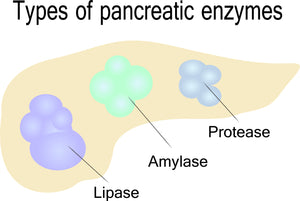

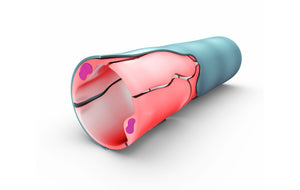
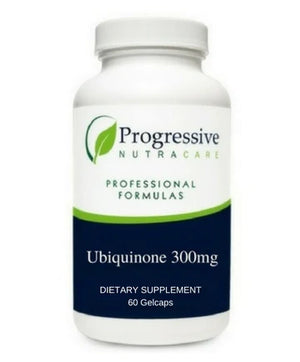

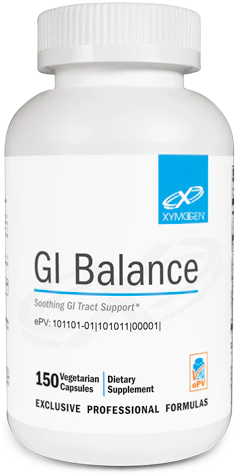
Comments 0